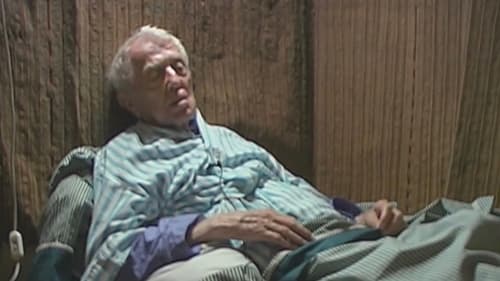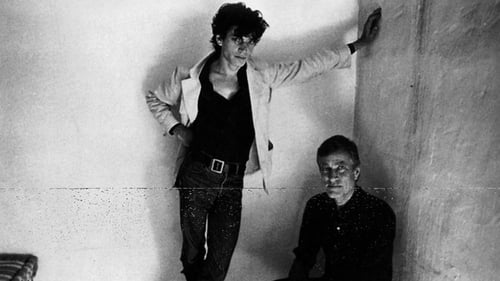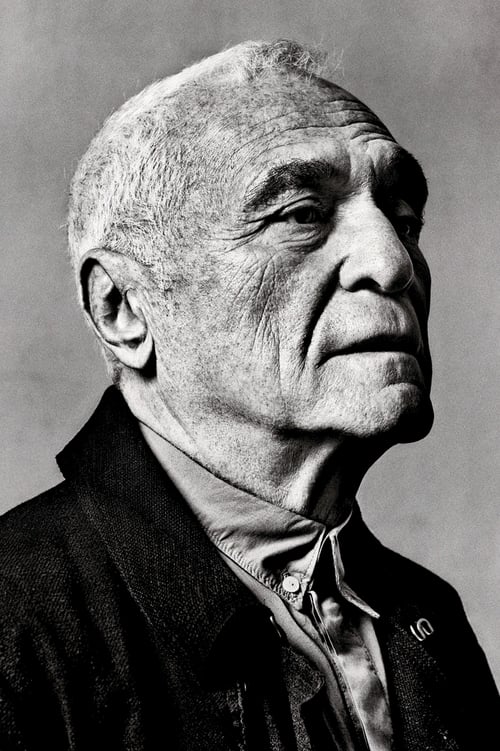John Giorno
Nacimiento : 1936-12-04, New York, New York
Muerte : 2019-10-12
Historia
John Giorno was an American poet and performance artist. He founded the not-for-profit production company Giorno Poetry Systems and organized a number of early multimedia poetry experiments and events, including Dial-A-Poem. He became prominent as the subject of Andy Warhol's film Sleep.

Self
El director Howard Brookner murió de SIDA en Nueva York en 1989, mientras realizaba la post-producción de su película. Su obra fue enterrada hasta que su sobrino desentierra la historia.

Self
Stephen Smith sets out to discover the real Andy Warhol - in the hour-by-hour detail of his daily life.

Self
The American composer and author Paul Bowles was a man with a great deal of charisma and influence. When he moved to Tangier, Morocco, in 1949, half the world followed him to the enigmatic city. His marriage with author Jane Bowles was a loving relationship of opposites, even though both were homosexual. Based on exclusive interviews with Bowles shortly before his death interwoven with anecdotes recounted by his friends and co-workers, the film portrays a daring and visionary life as well as a relationship shaped by an interdependency that encompassed much more than sexuality.

Self
A thoughtful portrait of a renowned artist, this documentary shines the spotlight on New York City painter Jean-Michel Basquiat. Featuring extensive interviews conducted by Basquiat's friend, filmmaker Tamra Davis, the production reveals how he dealt with being a black artist in a predominantly white field. The film also explores Basquiat's rise in the art world, which led to a close relationship with Andy Warhol, and looks at how the young painter coped with acclaim, scrutiny and fame.

Self - poet
Crump directed the feature-length documentary film Black White + Gray: A Portrait of Sam Wagstaff + Robert Mapplethorpe, which premiered in North America at the 2007 Tribeca Film Festival and in Europe at Art Basel. It explores the influence curator Sam Wagstaff, photographer Robert Mapplethorpe and musician/poet Patti Smith had on the 1970s art scene in New York City.

A portrait of the American Beat Generation writer William S. Burroughs (1914-1997) based on never-before-seen footage from his visit to Denmark in October 1983, and from his later years in Lawrence, Kansas. After having spent more than a quarter of a century outside of the United States, in Mexico, Tangier, Paris and London, Burroughs returned to New York in 1974. Shortly after, he began touring and reading his work to new generations of readers and thus establishing himself as a cult figure. The film focuses on Burroughs' unique talent as a performer, and on his later work, especially what is known as The Last Trilogy. In addition to the historic footage there are new interviews with friends and colleagues.

I am so endlessly alone. Whats my illusions, whats my odds, and illusions have to be killed, I don't have more time to destroy. Is my loneliness real and is my longing about what? Then who are this people?

Himself
Maria Beatty's documentary exploring the insights and influences of the American Beat Poets. The film conveys their consciousness and sensibility through interviews with William Burroughs, Allen Ginsberg, Diane Di Prima, among others. Also weaves in additional commentary from contemporary musicians, poets and writers such as Marianne Faithfull, Richard Hell, Lydia Lunch and Henry Rollins. Also expands upon how the poets reached new levels of creativity and inspired social change.

Himself
The first major profile of the American Pop Art cult leader after his death in 1987 covers the whole of his life and work through interviews, clips from his films, and conversations with his family and superstar friends. Andy Warhol, the son of poor Czech immigrants, grew up in the industrial slums of Pittsburgh while dreaming of Hollywood stars. He went on to become a star himself.

Documentation of the showcase titled 'The Final Academy', filmed on October 4, 1982 in The Haçienda, Manchester. Video 1 features the movies "Towers Open Fire" and "Ghosts at No. 9", video 2 features Burroughs' readings and performances by John Giorno and Brion Gysin.

Self
An exploration of Burroughs’ life story, as told by Burroughs himself along with many of his contemporaries, including Allen Ginsberg, Brion Gysin, Francis Bacon, Herbert Huncke, Patti Smith, Terry Southern, and William Burroughs Jr.

More than 20 contemporary North American poets recite, sing, and perform their work. Early in the film, Charles Bukowski talks about the energy of poets and of a poem. These poets are the children of Walt Whitman and of Charles Olson, incantatory and oratorical, radical, sometimes incorporating contemporary political imagery. Black Mountain poets, the Beats, minimalists like John Cage, the wordless Four Horsemen, Tom Waits, and others capture aspects of poets as troubadours.

One of Andy Warhol's screen tests, focusing on an actor's face for 4-5 mins.

Self
The films were made between 1964 and 1966 at Warhol's Factory studio in New York City. Subjects were captured in stark relief by a strong key light, and filmed by Warhol with his stationary 16mm Bolex camera on silent, black and white, 100-foot rolls of film at 24 frames per second. The resulting two-and-a-half-minute film reels were then screened in 'slow motion' at 16 frames per second.

Himself
Footage of John Giorno sleeping for five hours.

Himself
Poet and artist John Giorno washes dishes in the buff.

interpretation
Poetry film, 2007, 55′, colours and b/n, DVCam-Super 8

Himself
A portrait of the American artist Ray Johnson (1927-1995), based on a personal interpretation of Johnson’s avant-garde strategies, using the telephone and the internet as primary sources for sound and image.







